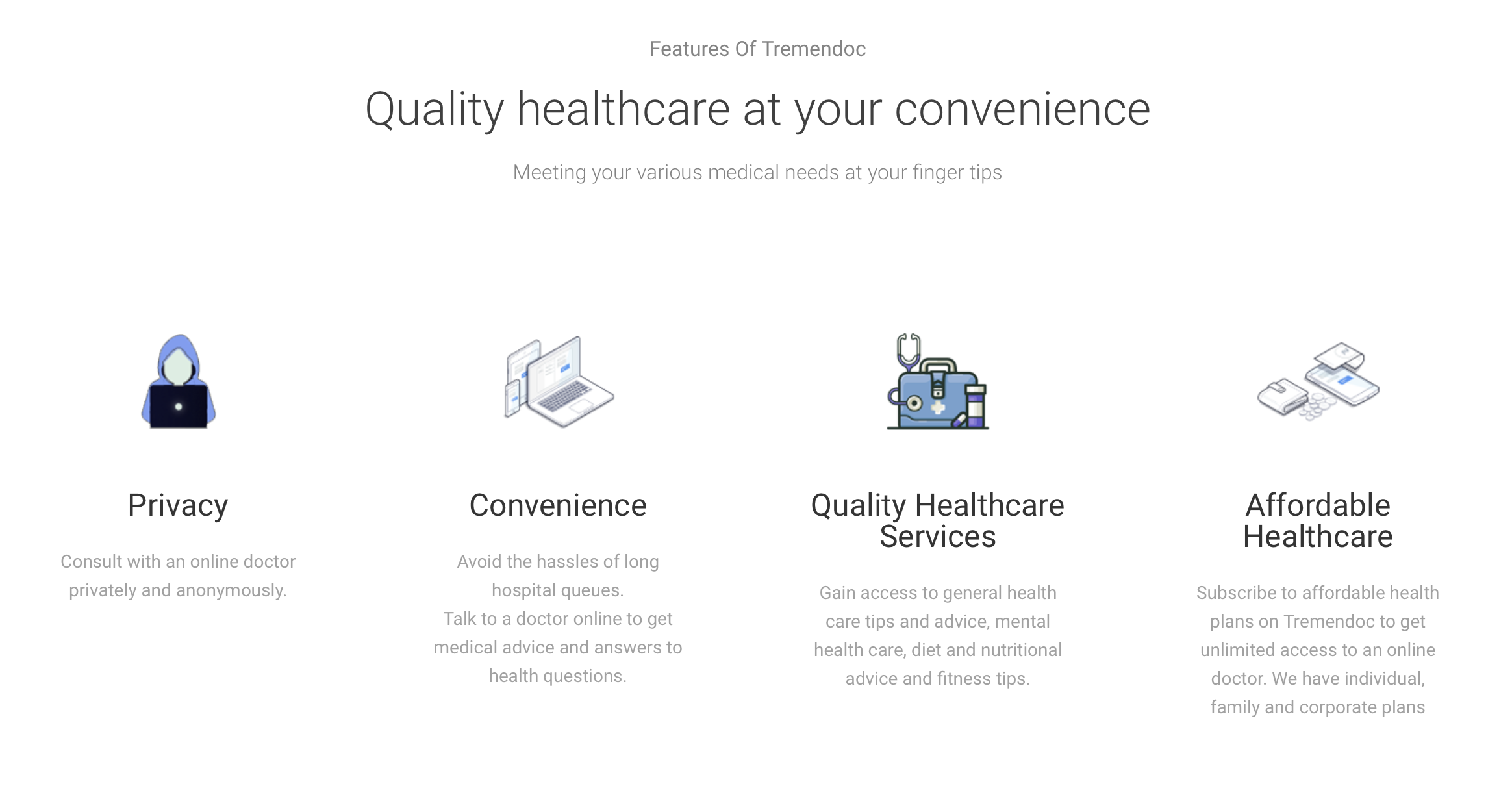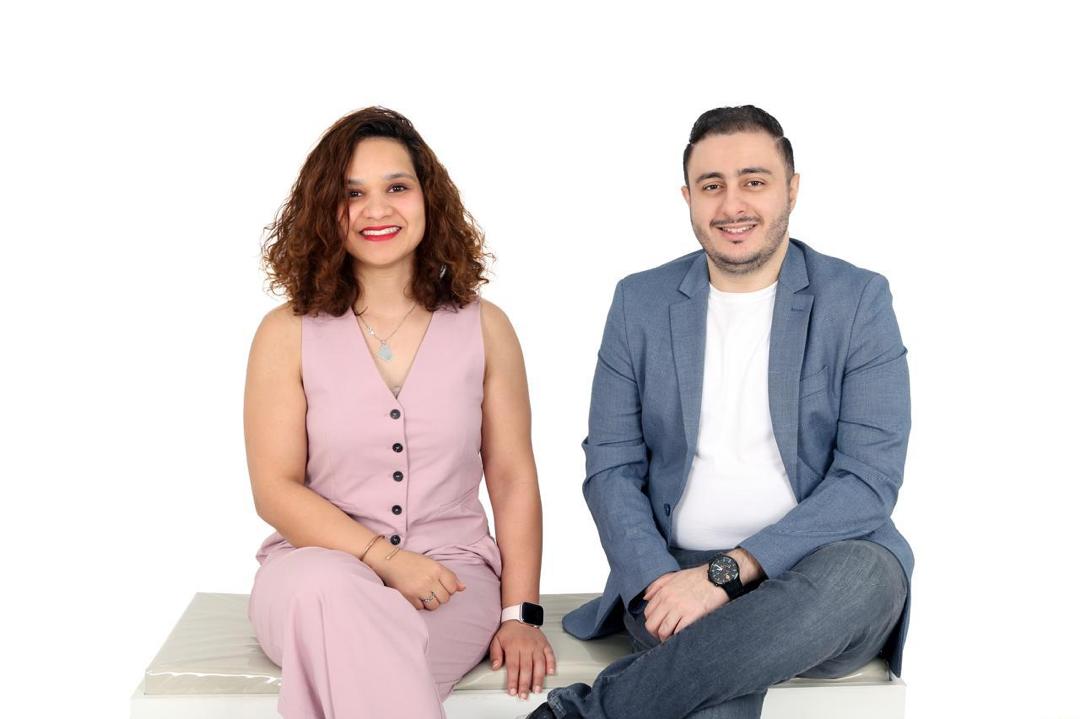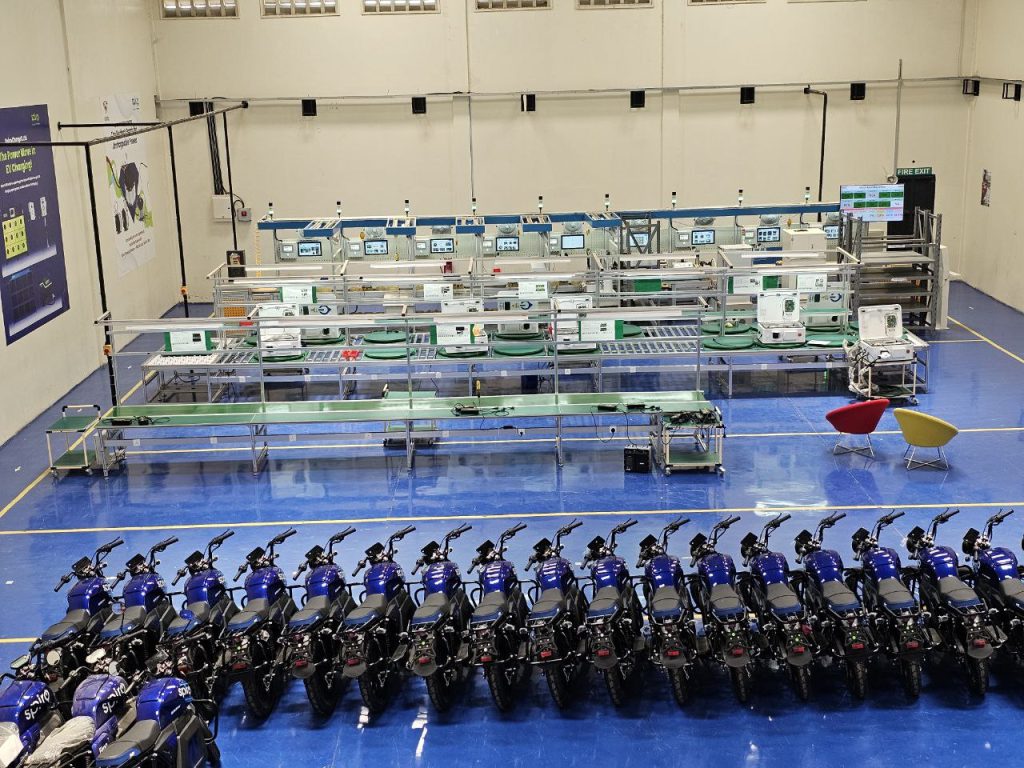My Life In Tech is putting human faces to some of the innovative startups, investments and policy formations driving the technology sector across Africa.
How do you arrive at the most viable business model for your startup idea? You build, you listen, you iterate until you get it right. Ugochukwu Jay Chikezie takes us on an interesting journey to launching Tremendoc, founding NairaBox and leading both teams through a pandemic.
There are many paths to building a career in the technology industry and Ugochukwu Jay Chikezie’s is one of the unconventional ones. The founder of Tremendoc and co-founder of NairaBox was studying to become a medical doctor at the Ebonyi State University in eastern Nigeria, but “failed out of medical school” after his first year. He ended up with a degree in Microbiology and went into entertainment as an artist manager right after school. His first introduction to the world of technology would come in the form of an opportunity in 2011 to run a digital distribution platform called Hibuzz. He was the business person, his partner Damilola Jegede, was the technology pointman and together they tried to build a business out of acquiring digital content in the form of films, music, books and distributing same. The platform also was used to distribute events by way of ticket sales. When its partner company, HiTV, ran into trouble the company folded alongside it.
But he had forged a strong business relationship with Jegede and for the next three to four years after, both tried their hands at various ideas trying to come up with a viable product.
In 2015, with some seed investment, they launched NairaBox. The lifestyle platform aggregates cinema viewings and major concerts in Lagos and Abuja and allows users buy tickets on the website. More recently, they’ve also introduced a food delivery product and have other services such as bill payments and airtime top-ups.
Chikezie always wanted to build a healthtech product given his stint in medicine but was unsure what specific need he wanted to solve. While in the middle of building out NairaBox, in 2015, an idea for a healthtech solution finally came. Unpleasantly. His infant son had been diagnosed with enlarged adenoids and would develop symptoms in the middle of the night that required emergency visits to the hospital and consultation with doctors.
“It hit me thinking about it, that there are a lot of people who do not have access to doctors like we did,” Chikezie says.
Even with access to doctors for emergency needs, he realised that it was impossible to have one at your beck and call at all time. During this period, telemedicine platforms were increasingly coming into the scene. Companies like Doklink and Hudibia had launched two years prior, the earliest telemedicine platforms on record in the country, and many more launched between then and 2015. With news of every launch, Chikezie was more convinced and eager to launch into his own venture. So, in 2017, he registered Tremendoc and launched mobile and web app versions with a ₦9 million ($25, 000) seed fund from angel investors.
But by 2018, the company’s growth had stalled.
“I raised some little money and I think I underestimated how much I needed to start the business at the time,” he says.
“My business model wasn’t right and I guess everybody in the industry at that time just got it wrong.”
Chikezie was very assured of the need for telemedicine in the country and that people would lap up the solution. His reasons were not far fetched. With a 1:5,100 doctor patient ratio (Chikezie says recent studies now place this at 1:15,000 -30,000), the need to consult with a physician at little cost or stress was not one many would pass up on.

“I remember telling my angel investors that, see, this is why I’m not asking for too much money; all I need is just enough to pay salaries for three months but after that, we would be generating enough revenue to continue,” he recalls.
“I was so sure that I didn’t need to market, you know, so I wasn’t even thinking about marketing. I believed that word-of-mouth would spread it like wildfire.”
In a way it did. When he compares the first few months of NairaBox to Tremenndoc’s, more of the latter’s users were willing to tell the next person about the platform. But they were not willing to pay for it.
At this time, Chikezie had tapped into his network of doctors, people whom he had stayed in touch with despite dropping out of medical school and had brought together more than 250 doctors across the country’s geopolitical zones on the platform in just about two months.
“But then, no patients. Nobody was willing to pay. You had doctors readily available on the platform and there were no patients.”
The payment model was Uber-like. Patients were required to pay per consultation and the company split revenue with the doctors.
In 2018, Chikezie shut down the mobile app and at some point in that year, raised $220,000 from a Nigerian financial institution. He put a team together and with better clarity on the business, relaunched the mobile app in August 2019.
Tremendoc targets Nigeria’s middle class and its smartphone users and now employs a subscription-based model that costs ₦1,000 per month. The subscription grants unlimited access to any of the doctors signed to the platform 24/7. While this has significantly increased its user base, it has not been all smooth-sailing still. Some target users, Chikezie says, especially in a country where prices are attached to quality, assume that because of how little it costs, the services they might get through the platform are not going to be of great quality.
“Education is what will break the barrier for telemedicine in Nigeria,” Chikezie says, and in a way this is also intricately linked to trust.
One way Tremendoc has navigated earning the trust of its target users is through partnerships with credible institutions across a number of sectors.
“We are the official telemedicine platform for Hygiea and AXA Mansard [and we’re] still talking to other HMOs that will go live pretty soon,” Chikezie says.
There are partnerships with banks, state governments (partnership with HSC, Health Service Commission for Lagos state to digitise general hospitals), and hospitals opening up the service to hundreds of thousands of people who are using the platform because it now comes recommended by their hospital or their HMO or their bank. The company briefly explored celebrity endorsements but discontinued it after sometime.
For Chikezie, the platform should take center stage and endorsements can sometimes give a false sell especially for something as critical as a healthcare service.

medical personnel all day every day
Nonetheless, wondering about what quality of service one can get on a ₦1,000 ($2.16) bill monthly is not unwarranted. Doctors aren’t paid well enough or constantly enough already and public healthcare institutions are not well funded. How can it cost so little?
For Chikezie, the sell for the doctors on the platform was to see their services as a side hustle, another source of income to augment whatever it was they earned at their primary place of work. While the original Uber-like model hinged their earning on the amount of consultation the platform was able to receive from patients that trickled in, with the new subscription model, Chikezie says the doctors are paid a flat monthly stipend arrived at by both parties.
“It’s now on us to get enough partnerships to flood the platform with enough patients,” he says.
Currently, there are about 500-600 doctors on the platform and this number is expected to reach over a thousand by the end of the year with some hospitals billed to be onboarded to the platform. There are 20,000 active patients and over 60,000 consultations have been carried out through the platform since its relaunch in 2019.
As with most telemedicine companies, the coronavirus pandemic did well to raise awareness about the need for remote medical care services and so there was a marked increase in adoption particularly during the lockdown in March and April. HMOs for one were an important link to introduce Tremendoc to a new set of users.
“Some of our HMOs have said they had 100% retainership because of the partnership they have with us. People were excited because they had their needs met,” he says.
“It was the first time we had that kind of surge. We were doing about 1,500 consultations per day and we had to start recruiting and vetting doctors.”
While the period was hectic, it was also a learning curve and provided ample opportunity to evolve, to smoothen out rough edges, to grow into this bigger room the pandemic had created.
“It was really a madhouse at the time. In the first few weeks there were a lot of hiccups and all our partners were screaming, and after a month it became seamless and we started getting good reviews from our partners.”
NairaBox was hit in a very much different way during the pandemic. With most physical events cancelled and cinemas closed for the unforeseeable future, it was a very trying time. There were drive-in concerts organised during the period but even those were shut down at some point.
“It really affected the company but we had one that was not affected which was food deliveries. That picked up at the time and helped keep the company afloat,” he adds.
Running two very different platforms comes with its peculiar challenges but a few have been across board; hiring, funding, building out teams who get the work done.
Interestingly and more specifically, Chikezie says there’s word that regulators are looking to put in some guidelines for the operations of telemedicine companies in the country. He gets the sense that it is going to be very private sector-led and has asked that he be involved in the creation of these policies. So far, he has not heard back.
“We’ll wait and see what they’ll come up with. I guess the first thing will be, you need a license to operate,” he says.
“We’ve seen situations where a sector is about to bloom and then they just slam licensing to kill it. They might not be doing it consciously but it almost seems like they are competing against themselves about who has the highest licensing fees for their sector.”
Licensing fees may be able to deter bad players but Chikezie believes what must be paramount in the formulation of any kind of regulation for the sector should hinge on ensuring doctors who practice via telemedicine platforms are certified and obey standard practice rules, and that users’ sensitive personal information are protected. At the moment, there is not a single all-encompassing policy that addresses the health technology sector save the National Health ICT Strategic Framework which expires this year.
For the future, Chikezie says both NairaBox and Tremendoc are looking at rolling out revamped versions of their mobile apps with new features including a mental health care service for Tremendoc’s users.
“A lot of our patients are asking for therapy. I think the awareness is there now but I think people prefer to talk to a therapist remotely to walking into a known mental health institution.”
What gets Chikezie up and running every day are his children, he says.
“They are the reason why I do all this.”

“I tell my teammates that when they wake up in the morning they should remember that there is someone else trying to take their bread and today might be the day they succeed in doing so,” he says about leading two diverse teams which is a constant balancing act.
While he pursues both businesses with the aggression of one hungry for growth and impact, he considers his teams as family and says he tries to treat them as such.
“My people have to love work. It excites me when they say, ‘Jay, we’re doing this for you, you inspire us everyday.’ So, I believe I’m doing something right in that area. I pray so.”




















